Sibling bullying is a matter of serious concern, but not many people know about it. As International Siblings Day 2023 is near, here is a new post from The Minds Journal to spread some awareness about sibling bullying. Sibling’s fight is a common occurrence in many households, but when sibling disagreements become abusive, it becomes bullying.
Sibling bullying and abuse are the most common but least reported abuse in the family. Prevalence is higher than spousal or child abuse combined with consequences well into adulthood similar to parent-child abuse.
Up to 80 percent of youth experience some form of sibling maltreatment; yet, it’s been called the “forgotten abuse.” Therapists also frequently overlook it.
Usually, the perpetrator is an older child (often the eldest) exploiting the emotional dependence and weakness of a younger sibling. Girls are at greater risk of abuse, generally by an older brother. When a brother abuses a sister, it often involves physical or sexual abuse. Sisters abuse one another also.
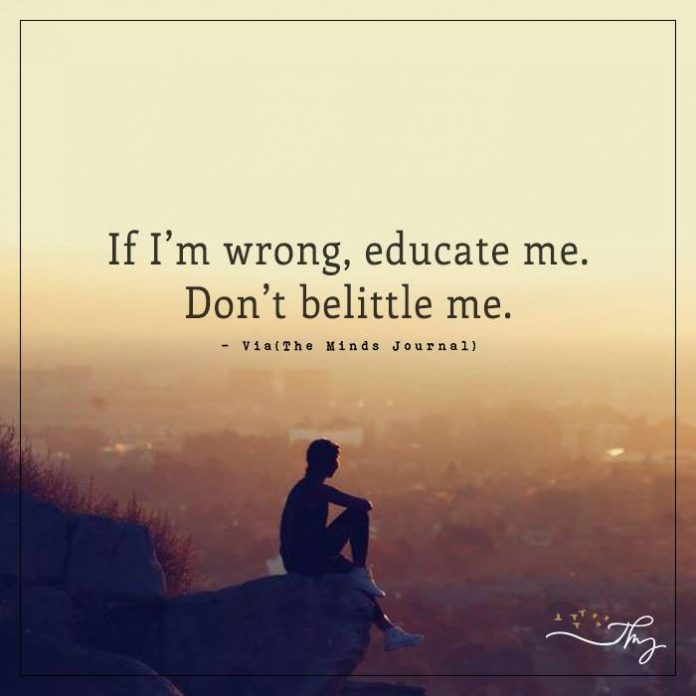
Lack of Reporting
Under-reporting is predominantly due to the societal denial of the seriousness of the problem. There is no definition of sibling abuse or laws governing it (except for some sexual abuse laws.) Resources for families are also lacking.
Parents have no support and are misinformed. Many expect sibling conflict and fighting. Hence, they typically overlook abuse and confuse it with sibling rivalry. When they don’t protect the victim, it constitutes a second wound–first inflicted by the sibling, then by the parent.
Sibling Rivalry vs. Abuse
Sibling rivalry and sibling bullying and abuse are different. Squabbles, jealousy, unwillingness to share, and competition are normal sibling behaviors.
Fighting between equals can be, too. The rivalry is reciprocal and the motive is for parental attention versus harm and control. Rather than an occasional incident, abuse is a repeated pattern where one sibling takes the role of aggressor toward another who consistently feels disempowered.
Typically, an older child dominates over a younger or weaker sibling who naturally wants to please his or her sibling. It’s often characterized by bullying.
Unlike rivalry, the motive is to establish superiority or incite fear or distress. Intent and the degree of severity, power imbalance, and victimization element are all factors to be considered.
Inappropriate parental discipline or ineffective attempts to respond to rivalry or abuse can compound the problem by the lack of consequences or by targeting one child. If a parent is overly strict or abusive, the perpetrator often vents his or her rage on the younger sibling.
Read 30+ Hilarious Siblings Day Memes To Celebrate An Unbreakable Bond
Types of Sibling Bullying and Abuse
Abuse may be physical, psychological, or sexual, and can be expressed through seemingly benign behaviors, such as ordering, manipulation, poking, or tickling. It’s damaging when there is persistent teasing, denigration, or physical harm by one sibling to another.
1. Emotional abuse:
Emotional abuse between siblings is common but it is difficult to research. However, its effect should not be underestimated.
Emotional abuse includes name-calling, belittling, teasing, shaming, threats, intimidation, false accusations, provocation, and destroying a sibling’s belongings.
The abuser may use manipulative tactics, such as playing the victim, deceit, threats, withholding, bribes, stonewalling, or trickery in order to exploit and gain an advantage over a younger child.
2. Physical abuse:
Physical abuse is the deliberate intent to cause physical harm or injury. It includes rough and violent behavior, pinching, choking, biting, slapping, tickling, hair-pulling, physical restraint (such as pinning down), shoving), and may include weapons.
3. Sexual abuse:
As per sibling bullying statistics, more than one-third of sex offenses against children are committed by other minors―93% are brothers abusing younger sisters.
Sexual abuse is distinct from age-appropriate curiosity. It may involve nurturing without the use of force. Behaviors include fondling, lewd acts intended to cause sexual arousal (that needn’t be on bare skin) masturbation, unwanted sexual advances, or forcing a sibling to view porn.
Victims are usually sworn to silence and have no one to turn to. As they mature, they resist ongoing sexual violations, offenders use threats of exposure or retaliation to ensure secrecy.
When parents are told, victims aren’t believed or are met with hysteria rather than empathy. Often, parents are in denial and doubt the victim’s story to protect themselves and the perpetrator.
Read Child Sexual Abuse: 5 Reasons Why You Should Reveal It
Risk Factors
Sibling abuse is a symptom of a dysfunctional family in an environment of family stressors, such as marital conflict, financial stress, family disorganization and chaos, and lack of resources.
Parents are unable to manage their own emotions and model appropriate communication and behavior. They can’t be present for their children’s needs and feelings.
These are factors that make sibling abuse more likely:
1. Spousal/intimate partner or child abuse (physical or emotional, including criticism and shaming)
2. Cultural norms that condone the abuse of power
3. A hierarchical family structure, where one spouse controls the other, and older siblings mimic that authoritarian behavior and attitude toward younger siblings
4. Gender and birth order matter. First-born children are more likely to be offenders and younger females victims. Siblings close in age or an older brother-younger sister pair are risk factors.
5. The father has anger issues.
6. An older child overseeing a younger sibling breed to resentment, boundary confusion, and abuse of power.
7. Parental neglect or lack of supervision
8. Parental normalization of abuse by ignoring or minimizing it. Silence is taken as assent.
9. Parental inability to resolve sibling conflict or respond appropriately
10. Parental favoritism toward one child or comparing siblings
12. A parent taking sides, blaming the victim, or shifting responsibility to the victim, e.g., “Don’t play with him, then.”
13. Substance abuse by a parent or the abuser
14. Children with a conduct or mood disorder or ADHD are more predisposed to violence.
15. The offender has experienced abuse, has an aggressive temperament, lacks empathy for victims, has lower or higher self-esteem than peers, or has unmet needs for physical contact.
Sibling Bullying Signs and Effects of Sibling Abuse
The effects of sibling bullying and abuse mirror parent-child abuse and have a long-term negative impact on survivors’ sense of safety, well-being, and interpersonal relationships. Victims of all ages experience internalized shame, which heightens anger, fear, anxiety, and guilt. Both victims and perpetrators often have low self-esteem, anxiety, and depression.
Children may complain of headaches, stomachaches, bowel, eating, and sleep disorders. Some have developmental delays or social and academic difficulties in school. They may run away or stay for periods at friends’ homes.
Victims may engage in substance abuse, self-harm, or delinquent behavior. Abuse causes fear of the perpetrator which may lead to PTSD and produce nightmares or phobias.
Survivors continue to struggle into adulthood with shame, depression, boundaries, low self-esteem, PTSD, loneliness, hopelessness, and drug abuse.
They may have somatic complaints, fear the dark, and sleep and eating disorders. Survivor trauma accumulates “Adverse Childhood Experiences,” which are linked to codependency and negative health as adults.
Survivors’ low self-esteem, lack of assertiveness, and inability to protect themselves lead to difficulties resolving conflict at work and in intimate relationships. They’re confused about boundaries and what constitutes a healthy relationship.
Read 12 Reasons Why The Middle Child Is The Best Child
They may become aggressive or develop codependent, pleasing behaviors and repeat their accommodating, submissive, victim role in adult relationships. Having been betrayed by a sibling and parent (through lack of protection), they’re distrustful and fear dependence and vulnerability.
They may be hypervigilant and emotionally unavailable or attract someone who is. Consequentially, they seek self-sufficiency and independence because they perceive depending on someone as dangerous. This leads to intimacy problems, loneliness, and isolation.
Long-term effects of sexual abuse include excessive self-loathing, guilt, anxiety, confusion, difficulty with sustaining long-term intimate relationships, vulnerability to sexual re-victimization, suicide, delinquency or criminality, and promiscuity or fear of sex.
Therapy is recommended to work through trauma. Clients should present the issue because most healthcare providers underestimate the impact of sibling abuse and don’t ask about it. Therapy should focus on healing the trauma and overcoming shame. See Conquering Shame and Codependency: 8 Steps to Freeing the True You.
Written by Darlene Lancer
Originally appeared in What Is Codependency
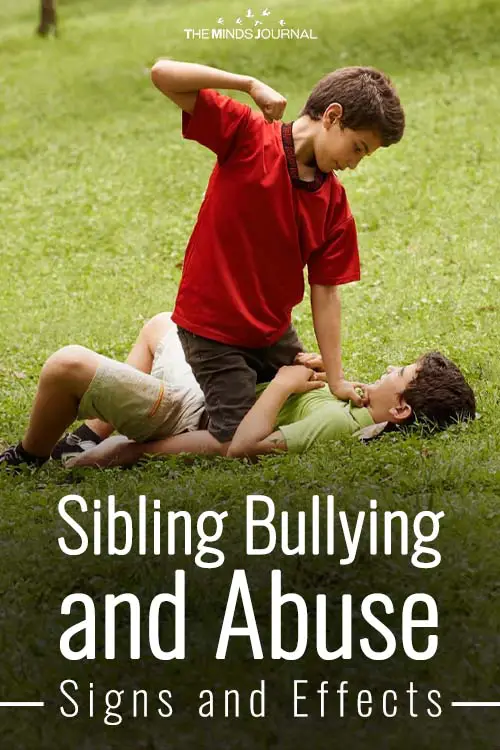
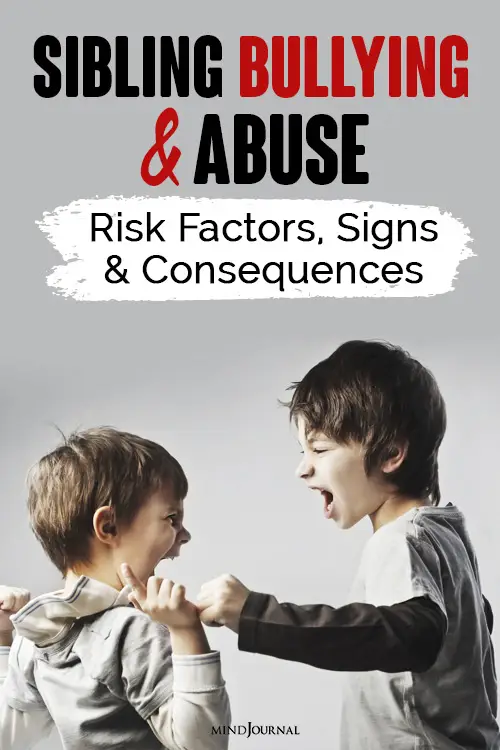
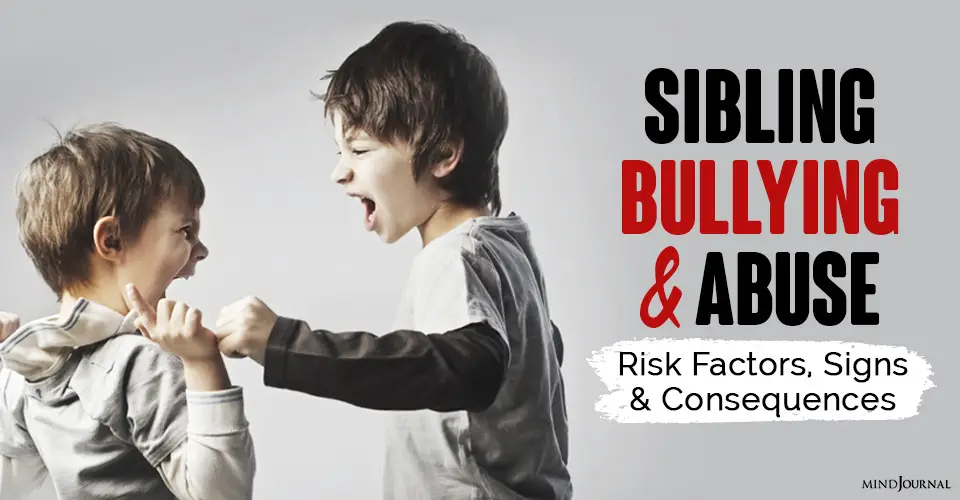
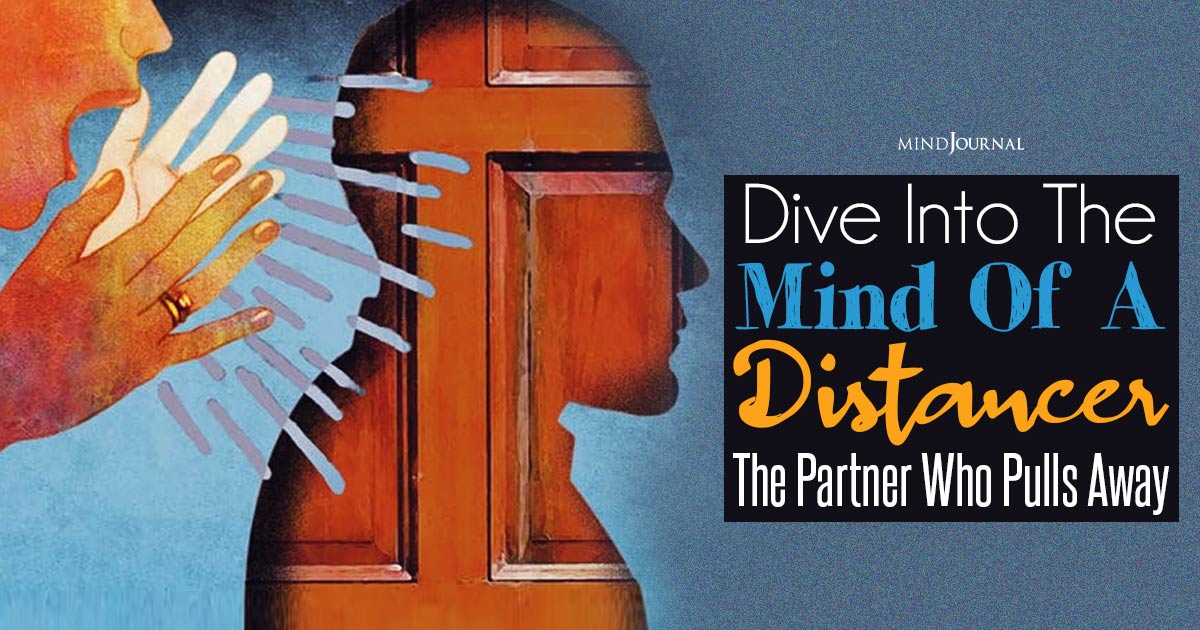


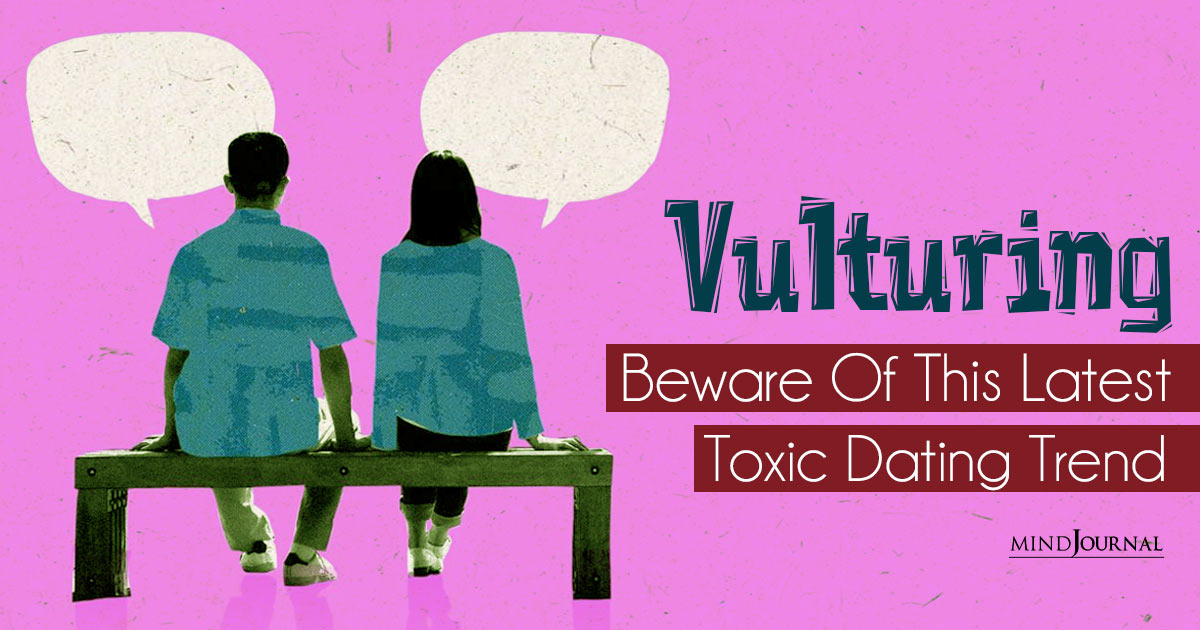
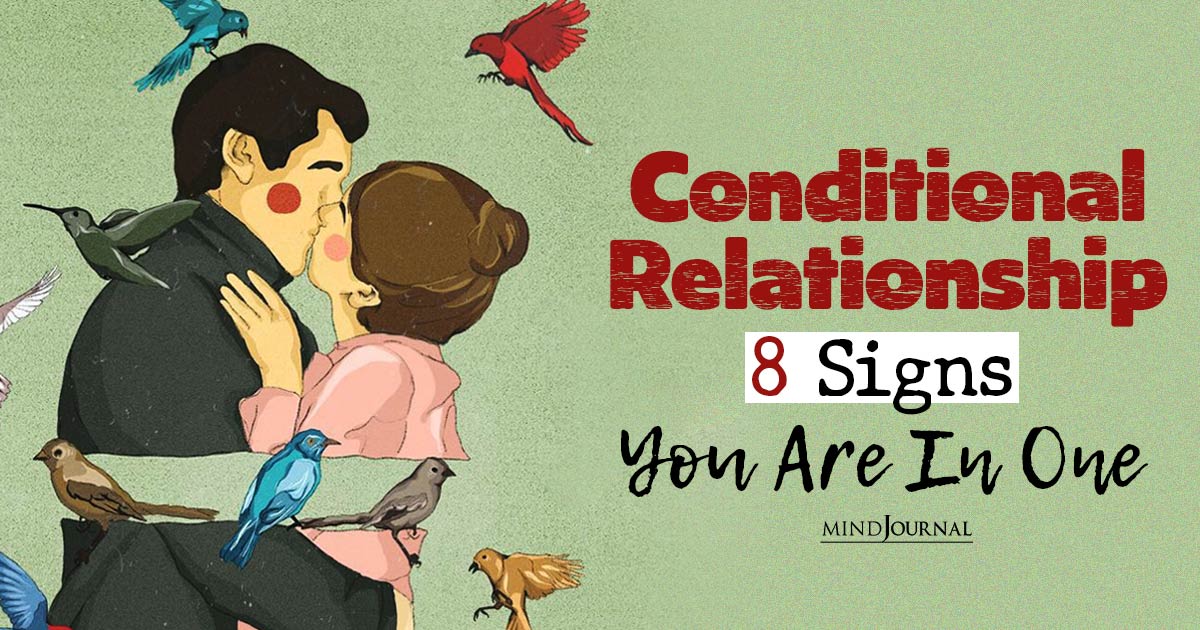


Leave a Reply
You must be logged in to post a comment.